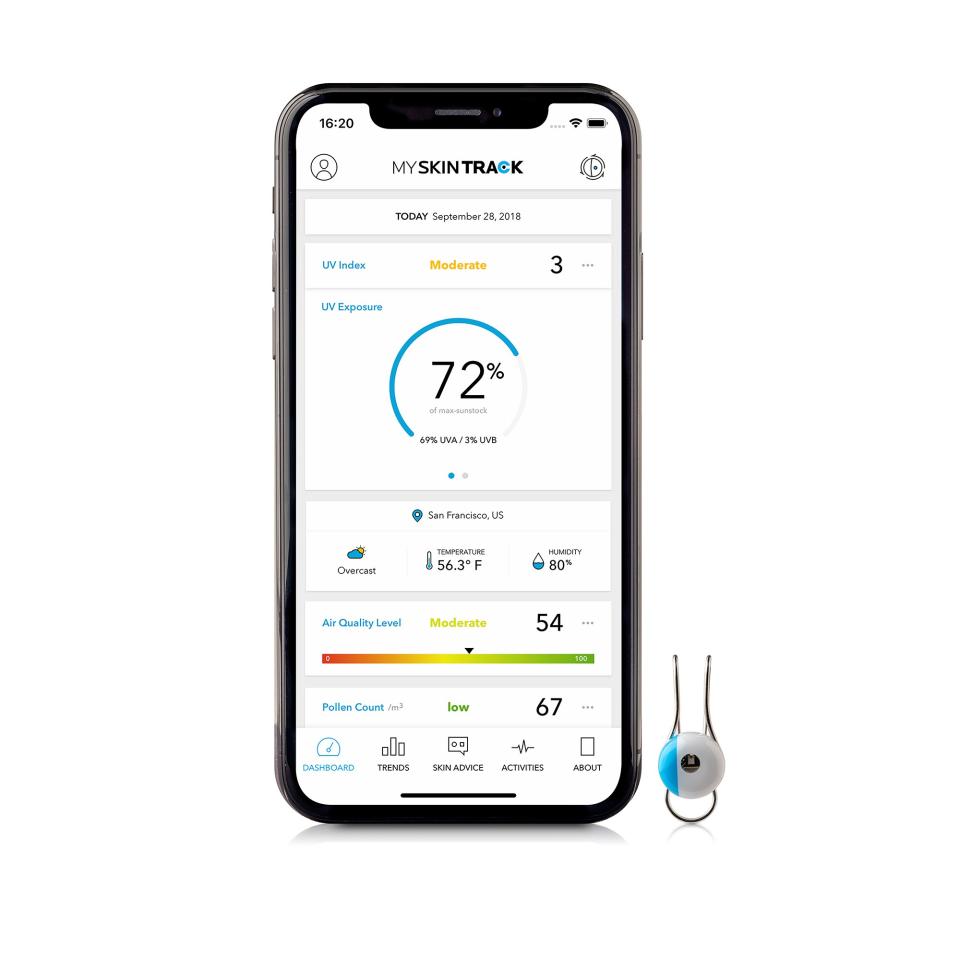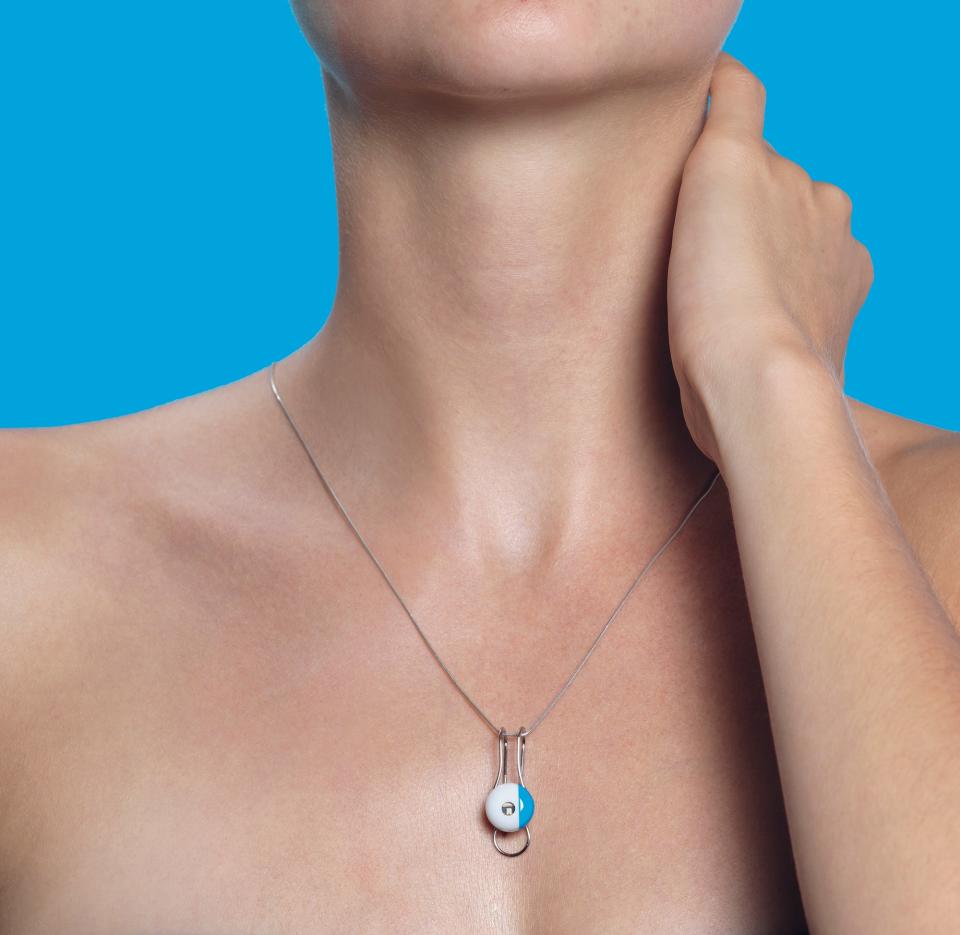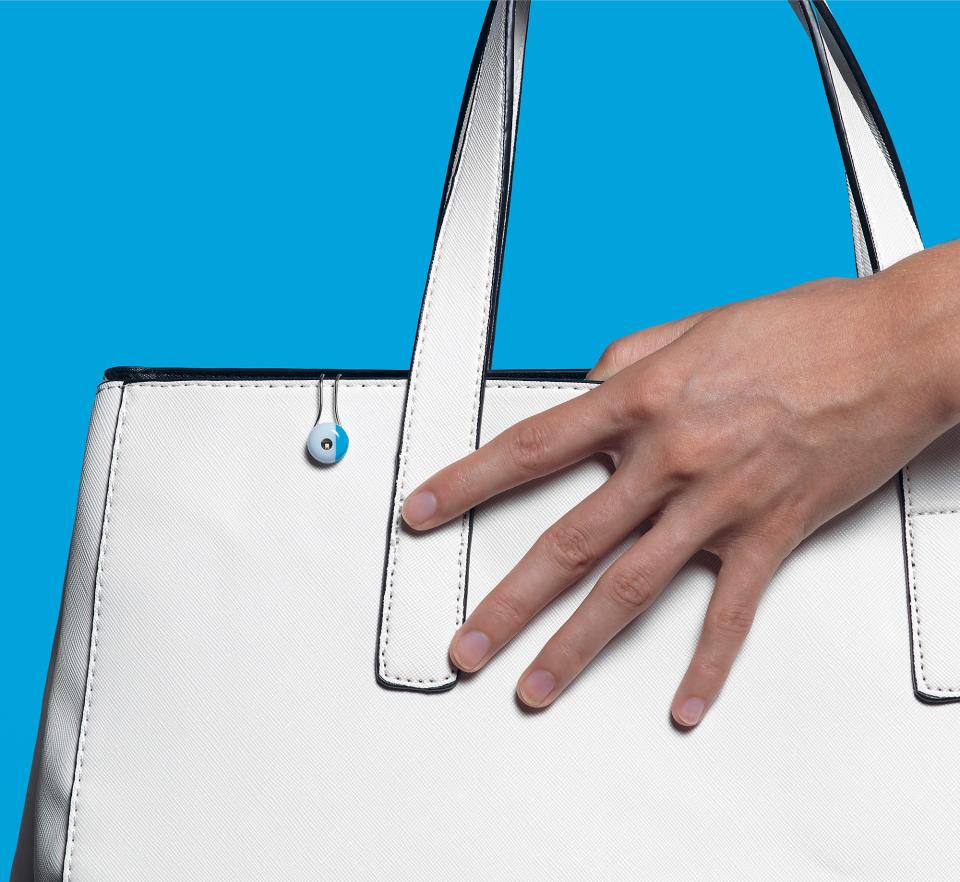La Roche-Posay Is Teaming Up With Apple to Launch an Innovative Wearable UV Tracker
La Roche-Posay is seemingly always on the forefront of advancing ways to help us better protect our skin from the sun's harmful rays. Along with its non-irritating, non-comedogenic sunscreen options, which have taken home a few Best of Beauty awards, the skin-care brand is also behind a slew of recent beauty tech innovations that promote modern-day sun safety. Back in 2016, the brand launched its color-changing My UV Patch, and most recently debuted a tiny wearable tracker, which looked a lot like nail art, at the 2018 Consumer Electronics Show. Not only was the super-small sensor pretty chic, it had the power to track environmental stressors that affect the health of your skin — including UV rays, pollution, humidity, and pollen levels — and send all the information to an app on your phone.
That all sounds great, but the technology wasn't yet available to everyday folks — until now. La Roche-Posay has partnered with Apple to officially launch its My Skin Track/UV wearable, which is a clip-on version of the sensor with all of the aforementioned features. Oh, and it retails for $60.
"We believe that the future of beauty is closely tied to health and incorporating technology to give people personalized ways to take better care of their skin," Guive Balooch, who led the device's research and creation at L'Oréal's Technology Incubator, tells Allure. "In addition to tracking your personal environmental data, the app encourages sun-safety habits and shares tips for protection. For example, when a user has reached 80 percent UV exposure [in one day], the app will send an alert."
Here's how it works: First, you download the app, which is called My Skin Track/UV. Then, before you head outside, clip the device onto whatever you're wearing (say, a shirt collar, or a piece of jewelry), then at the end of the day, or whenever you want, take the tracker off and literally tap it (lightly, we're guessing) against your smartphone. The tapping will update the app with all the information your tracker's been gathering — it can store up to three months' worth, after which, you'll have to delete some of the older data to clear up room.

La Roche-Posay My Skin Track App.jpg
Courtesy of brandAnother upside is that the tracker is waterproof and solar-powered, so you never have to charge it. The way it works, if you're wondering, is also very Apple-y. Just like Apple pay (or a hotel key card), the tracker uses near-field communication to send the information to your phone. And because everything Apple works with everything else Apple, if you've got an iPhone, the tracker will also integrate with your built-in HealthKit feature.
"We specifically designed it to be used as a permanent part of your routine throughout the seasons, for years to come," Balooch says. "It's durable, versatile, and intended for long-term use."
"Throughout the seasons" is the key phrase there. We know, we sound like a broken record when we tell you that sun-protection is super important during all times of the year, but that's because it's true. When it comes down to it, protecting yourself from cancer-causing UVA and UVB rays requires much more effort than just re-applying sunscreen while you're at the beach. Simply seeking shade isn't enough either, according to recent research.

La Roche Posay My Skin Track Necklace.jpg
Courtesy of brand"Ninety-nine percent of my patients with skin cancer have had too much UV exposure," says Ellen Marmur, a board-certified dermatologist and founder of Marmur Medical in New York City. "Like other silent killers — high cholesterol, high blood pressure, and high glucose — people tend to be in denial about their risks of high UV exposure. UV rays are damaging during every season."
You might be thinking: I wear my daily SPF and I work in an office building, do I really need to wear a tracker? And you might be right, because everyone is different. But consider that in the U.S., more people are diagnosed with skin cancer each year than all other cancers combined, according to the Skin Cancer Foundation. One in every five of us will get skin cancer by the time we turn 70. So, it's safe to say that whatever we're doing to protect ourselves, it's clearly not enough. "Any technology to help people prevent excessive UV exposure, guilt-free, just with the facts, will push us [to do better]," says Marmur.
All of this is to say, nothing about the device's ability to also give feedback about the pollution levels you come into contact with every day (car fumes, exhaust, and honestly who knows what else), which can contribute to early signs of aging, such as fine lines and wrinkles. Insight about allergen levels and humidity in your day-to-day surroundings could be interesting, too. Knowledge is power, people.
La Roche-Posay's My Skin Track/UV is $60 at apple.com.

La Roche-Posay My Skin Track device.jpg
Courtesy of brandMore on sun protection:
22 Amazing Sunscreens That Allure Editors Can't Live Without
Skin Cancer Is on the Rise — Even Though We All Know About Sunscreen
A Visual Guide to Identifying Warning Signs of Skin Cancer on Your Body
Now, see how sun care has evolved within the last 100 years:

